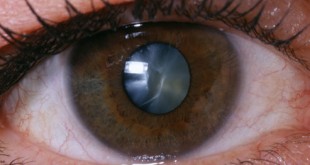According to many of the recent surveys, the number of people suffering from diabetes is increasing everyday at an alarming rate.
Though there is this increase in diabetic patients, the steps being taken to create general awareness among the people are insufficient.
And hence, as with every disease, there are myths surrounding diabetes mellitus too.
Lack of awareness leads to wrong self-assumptions and this ignorance can have negative effects.
Let us have a look at the various myths and facts about diabetes mellitus in general.
Myth 1 : Diabetes is curable.
Fact 1 : Diabetes is not a curable disease but it can be controlled.
Many scientists and researchers have dedicated their careers to find a cure for diabetes, and they’ve made many advances in diabetes research.
The only way to manage diabetes is to take medications and insulin as prescribed, eat a balanced diet, get plenty of physical activity, and check blood sugar levels regularly.
With the proper guidance and education, patients can prevent and/or minimize many of the more serious complications.
Our interdisciplinary team members, including certified diabetes educators, pharmacist, registered dietitians, and nurses, teach courses that help people diagnosed with diabetes learn how to effectively manage this disease.
Myth 2 : Is there any alternative treatment in treating diabetes?
Fact 2 : There are a few alternative treatment recognized to ease the suffering of many people with chronic disease, including diabetes.
However, before subscribing any alternative therapies, it is necessary to consult your diabetes health care team and your doctor.
The reason for this is to see how each individual therapy will affect your personal condition.
Some therapies will work for some individuals, others simply not.
Myth 3 : Can a diabetes patient have a normal life?
Fact 3 : Yes, of course you can.
Diabetes is a disorder that requires self-care and a willingness to take personal responsibility for its control on a daily basis.
A diabetes who does this usually lead a normal life, engage in everyday activities, choose nearly any career, have a family, travel and so forth.
Myth 4 : I’m a pregnant woman with diabetes. Is my baby healthy?
Fact 4 : Your baby may or may not get affected if their mothers have been diagnosed with diabetes mellitus.
However, even if they are found to be affected, the complications can be easily avoided by eating a balanced diet, good exercises and, if required, insulin shots.
Following these measures, your baby can live a healthy life.
Myth 5 : Diabetes Mellitus may cause brain damage
Fact 5 : The experience of hypoglycemia in diabetes can come on rapidly and cause extreme headache to a diabetic.
It is usually accompanied by weakness and sometimes mass confusion.
Because of these complications, people have assumed that hypoglycemia is directly linked to the killing of brain cells and eventually it destroys the function of the mind.
However, studies have revealed that diabetics who suffer from effects of hypoglycemia do not lose mental function whatsoever.
Children, though, may experience some loss of mental functioning as their brains are still not fully developed.
Human body usually has an endless supply of hormones that are able to reverse the effects of hypoglycemia, and in addition to the body’s defense mechanism, there are things that a diabetic can do directly prevent hypoglycemia.
The diabetic should check the blood glucose levels before starting heavy exercise and keep along an emergency supply of glucose which the body can absorb rapidly.
Myth 6 : DM is contagious
Fact 6 : Diabetes is certainly not contagious. It does not spread like other viral diseases.
You can be assured when you are around with a diabetes mellitus patient that you won’t develop one yourself.
There are certain factors which may lead to diabetes. These factors are considered as risk factor.
Few risk factors include individual family history, lifestyle, obesity, age and smoking.
Myth 7 : People with diabetes can feel whether their blood glucose is high or low
Fact 7 : There is no way for sure that will tell you your blood glucose levels except for testing them.
A person with diabetes may feel physical symptoms (such as extreme thirst, weakness, or fatigue) if blood sugar levels are high or low.
But some people may not show symptoms when their blood glucose is too high or low.
And also as some of the symptoms of high and low blood glucose are similar, it may be difficult to know what these symptoms mean.
For example, because blood sugar levels have to be very high to cause symptoms, a person who isn’t testing regularly may be having blood sugar levels high enough to damage the body without even realizing it.
The only way to be sure is to check your blood glucose levels regularly.
Myth 8 : People with diabetes will eventually go blind.
Fact 8 : It is not true that you will definitely go blind if you have diabetes.
The true is that keeping your diabetes in control, and maintaining a healthy lifestyle will reduce the chances of eye damage and blindness.
Myth 9 : High blood sugar levels are normal for some people and they aren’t really a sign of diabetes.
Fact 9 : High blood sugar levels are never normal. Certain conditions and certain medications may temporarily raise the blood sugar levels in people without diabetes.
But people who have higher than normal blood sugar levels or sugar in their urine should be checked for diabetes by a doctor.
Myth 10 : Children with diabetes can never eat sweets.
Fact 10 : Children having diabetes still can eat a certain amount of sugary food as part of a balanced diet.
But, of course they need to control the total amount of carbohydrates intake, which includes sugary treats.
As sweets provide no real nutritional value other than calories, they should be limited but not necessarily eliminated.
References
- 10 diabetes Diet Myth, WebMD; webmd.com/10-diet-myths
- An overview of the various types of insulin used in, Diabetes Info; diabetes-info.co.uk/treating-diabetes/insulin-overview.html
- Animal & Synthetic Insulin Drug Medications; carbs-information.com/insulin-synthetic.htm
- Common questions about Diabetes Medication, Group Health; ghc.org/healthAndWellness/
- Diabetes and Sport: diabetes.co.uk/diabetes-and-sport.html
- Diabetes Myths, American Diabetes Association;diabetes.org/diabetes-basics/diabetes-myths/
- Managing Your Diabetes Care; http://diabetes.webmd.com/h2t-managing-diabetes-11 .
 PENDIDIKAN PESAKIT Kementerian Kesihatan Malaysia
PENDIDIKAN PESAKIT Kementerian Kesihatan Malaysia



